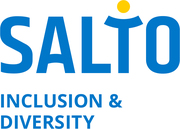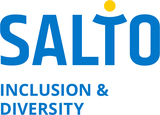Resources for Youth from disadvantaged Urban Areas
It is not just because you happen to live in an 'urban area' that you are per se disadvantaged! It depends very much of the characteristics of the situation you are in. Here are some of the challenges young people in (sub)urban areas could face:
- bad housing: high rise building blocks, dilapidated buildings, over-crowded areas, vandalism,...
- Challenging social network: 'wrong' friends, over-crowdedness, intolerance between different cultural groups,...
- Lack of leisure time offer: limited access to youth activities, no-bad-expensive sport infrastructure, reluctance of youth workers to work in difficult areas,...
- Poor economic situation: one partent families, unemployment, little money but lots of wanting, illegal income,...
- feeling of insecurity: higher crime rate, anti-social behaviour, gangs, prostitution, vandalism,...
- drug and alcohol abuse: to be part of the group, survival mechanisms,...
- ...
Maybe you recognise some of these issues in your area, but probably not all of them.
^^ top ^^
INJEP & SALTO Seminar for Urban Youth
INJEP (French NA) in cooperation with the SALTO Inclusion Resource Centreorganised a Urban Youth Seminar for experienced youth workers who have done inclusion projects in disadvantaged urban settings: to bring together expertise and exchange good practices about how (international) projects could be used to improve their situation.
- Based on this seminar SALTO Inclusion will develop a practical youth work manual (begin 2008) on setting up international projects with (sub)urban youth, part of SALTO's Inclusion for All series of youth work publications.
- Register for the SALTO Inclusion Newsletter to be informed about these inclusion booklets.
^^ top ^^
The Youth in Action programme & urban youth
One of priorities of the Youth in Action programme is the inclusion of "young people with fewer opportunities" (those who are at a disadvantage compared to their peers because of different obstacles; 'geographical disadvantage' being one of them). So youth groups from difficult urban areas are definitely one of the target groups of the YiA programme!
What can Youth in Action offer?
The Youth in Action programme gives European funding for different types of international or local youth projects. The National Agency in your country has more information about the YiA programme in your language and can help you developing your project. Some examples:
- Youth Exchanges = Youth groups from urban areas in different countries meet for a week around the theme of 'Urban Identity' and do music workshops around this theme, as well as group discussions about the realities in different countries. They round off their exchange with a concert...
- Group Initiatives = Your youth group wants to do a local (or international) campaign to raise awareness about political participation in your city and prepare funny postcards to incite people to go and vote...
- European Voluntary Service = you send (or receive) a volunteer to another country to take up some interesting tasks in an urban youth organisation. By doing so the volunteer learns about the other country and can bring back interesting ideas to his/her own city...
- Job shadowing = a youth worker goes to work together for a few days with a youth worker in another country to see and exchange ideas about how to set up attractive activities for young urban people...
- Seminars & Training Courses = bringing urban youth workers from different countries together to train them and exchange about youth work methods specifically adapted to working in cities...
- ...
- Get more info about criteria, procedures, funding from the National Agency in your country or have a look in the official YiA Programme Guide (all EU languages)
In the YiA programme guide you will see in the chapters of the different actions a section about Exceptional Costs. When you are working with 'young people with fewer opportunities' (e.g. urban youth that faces the challenges above), you could apply for exceptional costs. You will need to justify the reason why you qualify for exceptional costs to your National Agency. For example:
- extra money for mobility/transport (e.g. renting a car/bus) because no public transport available
- additional preparation or support for young persons with difficulties
- you need an interpreter on your project because of limited knowledge or practice of foreign languages
- additional personal expenses in the case of economic disadvantage
- a specialised youth worker / trainer which is not available in your urban youth organisation
- costs directly related to special needs of participants (mobility problems, health care, etc.)
- Vaccination or visa costs (if applicable)
- ...
These are just a few examples - it is up to your National Agency to decide - and up to you to explain why the project needs the exceptional costs.
^^ top ^^
Educational Materials, Tools & Inspiration for Urban Projects
First of all we would like to invite you to have a look on the SALTO website. SALTO has developed resources and tools especially for international projects, and SALTO Inclusion focusses on specific Target Groups, one of them being 'Urban Youth'
- Have a look at the SALTO Inclusion for ALL booklets: practical youth work booklets adressing specific target groups and how to set up international projects with these groups.
www.salto-youth.net/InclusionForALL/ - Also the Coaching Guide is particularly useful when guiding a group through a project.
www.salto-youth.net/CoachingGuide/ - If you are looking for youth work methods to do with your group, SALTO developed the Toolbox for Training & Youth Work, in which you can find all kind of youth work exercises, methods, background texts etc.
www.salto-youth.net/Toolbox/ - To get inspriration from previous projects, you can browse through the Innovative Projects database, or the Youth Initiatives compendium www.salto-youth.net/InnovativeProjects/ and www.salto-youth.net/YIcompendium/
- If you are looking for partner groups for your international youth project, you can try your luck in one of the existing partnerfinding databases: www.salto-youth.net/partnerfinding/
- And if you would like to work with a trainer specialised in working with urban youth or with certain youth work methods, you can search the Trainers Online for Youth database or do a call for trainer
www.salto-youth.net/TOY/
There are also many other organisations and institutions that have published educational material and handbooks. SALTO lists most of them in the Toolbox for Youth Work & Training, but we list some particularly relevant ones here.
- Training Kits (T-Kits): educational manuals from the Partnership between European Commission and the Council of Europe for youth worker training (e.g. about project management, organisational management, intercultural learning, international voluntary projects, evaluation, funding & financial management,...)
www.training-youth.net - All Different All Equal education pack: one of the resources stimulating cultural diversity and tolerance from European Commission against Racism & Intolerance
www.coe.int/ecri - The National Youth Agency in the UK publishes many background texts, researches and publications on different issues related to youth
www.nya.org.uk - Streetworker.org is a website from a Leonardo project with lots of information about existing structures and practices
www.streetworker.org - The (UK) Federation of Detached Youth Work hass ome articles and (UK) policy guidelines about 'detached Youth Work' (outside of youth organisations and structures)
www.detachedyouthwork.info - There are a set of Risk Assessment instruments (in psychology) for violent youth and young people with anti-social behaviour (e.g. SAVRY,... - see www.thefreelibrary.com)
www.violence-risk.com/risk/instruments.htm - ...
Some of the bigger funding programmes mentioned below (e.g. Urban, Interreg, European Social Fund,...) have websites where you can get inspiration from their previous projects. These projects are more focussing on structural and policy cooperation (between urban areas), but don't always have a specific focus on 'youth'.
- Urbact: the showcase for URBAN programme projects, focussing on cities with high unemployment, delinquency, poverty,... - some of them with a youth component
www.urbact.eu - Interact: idem, but for 'interregional' cooperation of the INTERREG programme, some of these projects taking place in cities
www.interact-eu.net
A particular mention goes to the German website www.eundc.de "Entwicklung und Chancen junger Menschen in sozialen Brennpunkten" (development & opportunities of youth in social difficulties), which has a wealth of background texts and good practices for youth work with youth at risk around different topics (e.g. intercultural, area management, training, criminality, gender mainstreaming, family, health,...) - unfortunately only in German language.
Some specific methods:
- Cooperative Learning in Multicultural Groups (CLIM): www.steunpuntico.be/main.asp?lan=1&typ=91
- Clown therapy: www.clownterapia.it (Italian, links to different countries)
- Rational-emotive therapy: www.psychotherapy.ro
- Art of Living "BreathSmart": www.artofliving.com
- Urban Renewal - including young people in it: www.streetsforliving.net
- Big Myth from different cultures about the creation of the world: www.bigmyth.com
- Peer Education: www.epto.org, www.article12.org
^^ Top ^^
Funding and Money for Urban Youth Projects
We would like to highlight the Youth in Action programme as a tool/funding scheme specifically for international youth projects (youth exchanges, European Voluntary Service, Democracy projects, youth initiatives,...) and for the training and networking of youth workers (training courses, seminars, job shadowing,...).
What's more, this programme has priorities such as European Citizenship, Inclusion of young people with fewer opportunties, Cultural Diversity and Youth Participation - which are very relevant for youth projects in disadvantaged urban contexts.
- The Youth in Action programme site - download the YiA programme guide in 21 languages
http://ec.europa.eu/youth/yia/index_en.html - The European Commission also posted a YiA promo-film online at Youtube
www.youtube.com/watch?v=VE0mRmTRbfY - More info (in your language) from the YiA National Agency in your country
http://ec.europa.eu/youth/contact_en.html - The Inclusion Strategy of the Youth in Action programme - special measures for 'inclusion projects'
www.salto-youth.net/InclusionStrategy/
Other funding for international youth projects:
- European Youth Foundation (Council of Europe): www.coe.int/youth/. The EYF funds international youth projects (minimum 4 European partner countries).
- Solidarity Fund for Youth Mobility (Council of Europe): www.coe.int/youth/. The Mobility Fund pays rail travel for disadvantaged groups participating in international youth projects.
- World Bank Small Grants Programme for local communities www.worldbank.org/smallgrants. The Small Grants Program is one of the few global programs of the World Bank that directly funds civil society organizations.
- The Soros Foundation is particularly active in Eastern and Central Europe and has specific grants for children & youth.
www.soros.org - There are funds for bilateral or multilateral youth projects between specific countries: French-German www.ofaj.org, Visegrad www.visegradfund.org, German-Czech www.tandem-org.de, German-Polish www.dpjw.org, Nordic countries www.norden.org,...
- Check with Embassies and Cultural Institutes from other countries: British Council, Alliance Francaise, Goethe Institut,...
You can also apply for funding from programmes specifically for 'urban projects' (not specifically youth) - but often they are very large and require big partnerships.
- URBAN: projects in partnerships between on cities with high unemployment, delinquency, poverty,...
www.urbact.eu - Culture 2008: for cultural projects and cooperation (e.g. about urban culture)
http://ec.europa.eu/culture/ - Daphne: for prevention of crime and violence
http://ec.europa.eu/justice_home/ - Anna Lindh Euro-Mediterranean Foundation for the Dialogue between Cultures
www.euromedalex.org - ...
If you are looking for more information about international opportuntities for young people, you can have a look at the European Youth Portal or get information from EuroDesk.
- EuroDesk information about European Funding: www.eurodesk.org
- (some private companies also provide info on European funding e.g. www.welcomeurope.com with a possibility to search for Youth or Urban related funding)
If you are working with schools and 'formal' education (as opposed to non-formal education as done in youth work) some of the following EU educational programmes could be interesting for you.
- Comenius: exchanges between primary & secondary schools
- Leonardo: vocational education & training projects abroad
(Eurodyssee: also funds internships/job placements for young people in another European region > www.eurodyssee.net) - Grundtvig: international projects within adult education
- Erasmus: exchanges in higher education & universities
- More info: http://ec.europa.eu/education/
More generally, there is also an EU programme called "Citizens for Europe" which aims to bring people from different European countries together and support European Citizenship and European integration. Here are some possibilities:
- Active citizens for Europe: town-twinning & other kinds of citizens' projects
- Active civil society for Europe: structural support for Europe-wide civil society organisations & support for trans-national projects
- More info: http://ec.europa.eu/citizenship/
And if you are looking for money for 'Employment projects', the different member states of the EU manage the European Social Funds, aiming to reduce differences in prosperity and living standards across EU Member States and regions, and therefore promoting economic and social cohesion. The ESF is devoted to promoting employment in the EU.
- The ESF website: http://ec.europa.eu/employment_social/esf/
- More info from the ESF agency in your country (addresses online)
There is also money outside EU funds. You can contact different foundations or companies for grants or sponsoring.
- find an overview of foundations at Funders Online www.fundersonline.org
- E.g. Banks sometimes have foundations that fund projects e.g. la Caixa in Spain, Mott Foundation for Civil Society,...
- Rotary & Lyons Clubs www.rotary.org & www.lionsclubs.org. These are associations of professionals that sometimes give money to projects that answer the needs that challenge communities around the world.
- Corporate social responsibility www.csreurope.org. Companies support social projects or civic society. CSR Europe regroups over 60 multinational corporations.
- E.g. Nokia Connection programme: http://www.nokia.com/A4254327. This programme funds projects for youth development
- Or check out local authorities or companies near you
^^ Top ^^
Existing Activities & Programmes
If you are looking for more information about international opportuntities for young people, you can have a look at the European Youth Portal: www.europa.eu/youth/
You can also participate in someone else's project before doing your own. There are many requests for partner groups going around. Have a look at one of the existing partnerfinding databases: www.salto-youth.net/partnerfinding/ or register for the European Youth Exchanges mailing list: http://groups.yahoo.com/group/european-youth-exchanges/
Do you need more training first, before you feel comfortable enough to set up your own urban youth project? Or you need to find international partners for your project? You can find a wide variety of youth work training offers and partnership building seminars in the European Training Calendar: www.salto-youth.net/training/
An easy access international activity for the young people you are working with are voluntary work camps (international groups do some voluntary work in a non-profit organisation abroad) - or you can host a work camp:
- Service Civil International > www.sciint.org
- Alliance of Voluntary Organisations > www.alliance-network.org
- Youth Action for peace > www.yap.org
- GLEN Network (Global Education Network of Young Europeans) > www.glen-europe.org
- VSO (Voluntary Service Overseas) - long term volunteering > www.vso.org.uk
Idealist.org is a website with information about social activism world-wide and where you can post and find organisations, resources, ideas, jobs, volunteering to make this place a better world: www.idealist.org
^^ Top ^^
Information about Europe? for youth?
There are 2 networks of European & youth information organisations:
- Eurodesk is a European network of information services in 27 countries providing a unique access to European information (about funding, EU, Youth in Action,...) for young people and those who work with them > www.eurodesk.eu
- ERYICA (European Youth Information & Counselling Agency) is a network of generalist youth information points in Europe. They developed a European Youth Information Charter and the InfoMobil with handy information about travelling to different countries > www.eryica.org & www.infomobil.org
Trainers about Urban Youth Issues
Are you looking for a trainer for your inclusion training with and/or for urban youth? SALTO has developed the Trainers Online for Youth (TOY) database for this purpose. You can find a list of trainers specialized in urban youth topics, and you can also add search criteria (such as language skills, training background, gender, country, etc.)
- List all trainers working on urban youth issues
- Send a call for trainers to TOY
- Search a Trainer
- More about TOY
^^ top ^^

 Social Exclusion? Unbelievable!
Social Exclusion? Unbelievable!
